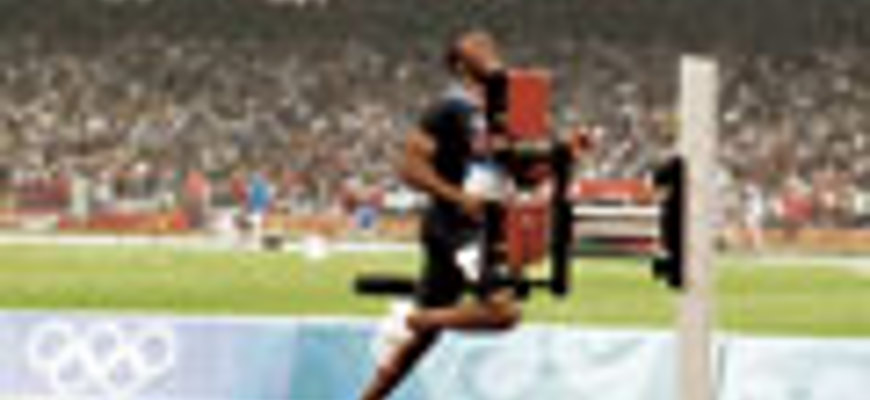Life bans just not sporting

For 20 years the British Olympic Association (BOA) sustained a byelaw that was central to “Team GB” selection policy, namely that any athlete found guilty of a doping offence would be ineligible, for life, for selection at any Olympic Games.
However, in October 2011, the US Olympic Committee, on behalf of LaShawn Merritt, successfully challenged the International Olympic Committee’s so-called “Osaka” rule, banning doping offenders from competing in the next Olympics even if their suspension had completed. The outcome led the World Anti-Doping Agency (WADA) Foundation Board to declare, in November 2011, that the BOA byelaw was incompatible with the WADA code, which bound the BOA as a signatory. The BOA challenged the decision before the Court of Arbitration for Sport.
The case centered on whether signatories to the WADA code had complete autonomy in their discretion to deal with doping offenders, provided they did not apply sanctions lower than mandated by WADA, and to select those athletes most suitable and deserving to represent their country at the Olympic Games by using doping offences in their selection criteria. The crux was the BOA’s contention that the byelaw did not represent an additional or higher sanction, but rather was only part of a number of criteria: what led to non-selection was not the anti-doping violation, but the fact that offenders had cheated and therefore were not of good character.
Consistency matters
The CAS panel rejected these arguments, concluding that consistency and harmony in the fight against doping were to be upheld through consistency in sanction. Included in its reasoning was that the availability of an appeals process highlighted that the BOA byelaw was a disciplinary sanction. The BOA was in breach of its obligations as signatory to the WADA code by maintaining the byelaw, as it was in breach of harmonisation.
Whether the BOA will look to revise its byelaws in order to permit more discretion to identify and select based on character and integrity, but not applying automatic ineligibility with regard to doping, is yet to be seen. Any revised byelaw applied to achieve the same effect would be very susceptible to challenge, as the tenor of the CAS decision is that the effect of the rule is as important as a label or description.
As a result, two high-profile athletes, sprinter Dwain Chambers and Scots cyclist Mark David Millar, are now available for selection for London 2012, along with six others previously ineligible. BOA chairman Lord Moynihan told a news conference: “The BOA are clearly very disappointed in the outcome... We will seek far-reaching reform, calling for tougher and more realistic sanctions: a minimum of four years including one Games.”
Selection: the final say?
Elsewhere in the buildup to London 2012, the BOA has been very busy scrutinising national governing bodies’ (NGBs) nominations for athletes to compete, this time making challenges about eligibility and selection, with the BOA setting basic performance standards to be met.
One high-profile example of friction between the BOA and an NGB concerns Aaron Cook, a world leader in taekwondo, who was twice not nominated for Team GB’s Olympic squad. The BOA ordered Taekwondo GB to reconsider selecting Lutalo Muhammad, world no 56; Taekwondo GB said that world rankings were largely irrelevant to its decision and questioned the BOA’s authority to overrule its panel of experts.
The NGB’s high-performance division, Sport Taekwondo UK, considered that international rule changes about the way “head shots” are scored made Muhammad a better prospect than Cook, despite the ranking disparity. The BOA instruction to reconsider came after Cook won an initial appeal against Taekwondo GB’s first decision on selection, on the basis of missing data and the ineligibility of one person voting. A second process confirmed Muhammad’s selection, before the BOA decided to intervene.
At the heart of each of these disputes has been the meaning and effect of the NGB’s rules. Recent disputes away from the Olympics have seen an ever growing focus on and scrutiny of the meaning of rules and the use to which they can be put, when regulating sport. While the dispute surrounding Cook will look at the narrow issue of the BOA’s selection procedures, focusing only on its rules, CAS’s declaration that the BOA rules were incompatible with the WADA code highlights the importance of national rulemakers being strict with themselves in the rules they promulgate, ensuring that they are in turn compatible with their own obligations to international federations and international stakeholders in sport.
In this issue
- Prescription and title to moveable property
- Gold-plated pension liabilities – what next for law firms?
- Getting your fix
- A trainee perspective on business development
- Embedding ADR in the civil justice system
- From death to life
- Reading for pleasure
- Appreciation: Alistair Hamilton
- Who shares in the common grazings?
- Opinion column: Mev Brown
- Book reviews
- Council profile
- Why the dual role works
- Rights both ways: a contrary view
- President's column
- Property reports relaunched
- Equality in austerity
- How old is too old?
- Expanding the country file
- The social side of practice
- Judicial minefield
- Program protection
- Life bans just not sporting
- Coleman revisited
- Never mind the reasons
- Another year in focus
- Law reform roundup
- Business checklist
- Banks: POA campaign continues
- Ask the experts
- Ask Ash






